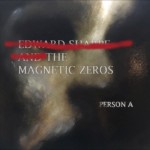Listening to Edward Sharpe and the Magnetic Zeros brings to mind thoughts of home.
Many listeners received their introduction to the band with the 2010 commercial hit and rustic anthem, “Home.” From then on, the Magnetic Zeros established an image of campy charm thanks to its infectious whistling tunes with sing-along choruses galore.
But fans expecting to hear the same happy-go-lucky tunes from the band’s latest album “PersonA” will be surprised with a more sophisticated sound. “PersonA” shows off the 10 band members’ impressive instrumental skills, trading musical gimmicks like claps and whoops for unexpected elements like electronic distortion, jazz riffs and world music rhythms.
“Hot Coals” opens with a deceptively downtempo ambience, leaving listeners unprepared for the song’s smoldering chorus of horns, guitar and voice. A seven-minute saga of rhythmic and harmonic evolution, “Hot Coals” is ambitious, considering the band became best known for simpler, punchier pop tunes like “40 Day Dream.” The song succeeds in staying engaging throughout, though, by playing on an extended metaphor of a passion slowly burning out – or, in the context of the ensuing album, just warming up.
The album’s featured single, “No Love Like Yours,” is a joyful tune that lightens the weighty mood “Hot Coals” introduced. Featuring a signature twanging vocal delivery, “No Love Like Yours” captures a similar sound to the Magnetic Zeros’ more folk-oriented hits from albums past.
The song’s theme of self-rediscovery brings to mind the lead singer’s indecisiveness in life and love. The single’s accompanying music video, shot entirely on iPhones, captures the band’s emphasis on ensemble with playful shots of lead singer Alex Ebert finding kinship among eccentrically-dressed instrumentalists and dancers. The music video visually represents the band’s participatory style, featuring spirited chants that meld together the voices of all 10 band members. It’s an infectious invitation for audiences to join in the catchy choruses as well.
The Magnetic Zeros shows off its expertise in non-indie genres by incorporating unexpected jazzy beats and a big band-inspired saxophone solo on “Perfect Time.” Ebert’s voice on “Perfect Time” is a nostalgic croon; listening to the ballad evokes images of a dim, cigar-scented jazz club in the 1940s. The intimate atmosphere of the piece helps break up the ’round-the-campfire vibe from the rest of the album, adding a grown-up touch to the homegrown image the band had previously harbored.
The true gem of the album is “Wake Up the Sun,” a winding six-minute musical journey pairing pounding drums with motivational major melodies. The quick tempo broadens to a heart-pounding anthem around the 4-minute mark, bursting like beams of sunlight to the final chord.
Between “Hot Coals” and “Wake Up the Sun,” the Magnetic Zeros present a previously-unrealized talent for long-form composition, giving the members opportunities to show off their musical chops and compositional creativity.
“Wake Up the Sun” achieves musical unity despite sweeping transitions between its sections, keeping listeners hanging on through the song’s twists and turns. The song is carried along with a driving piano line and a delightfully peculiar world music percussion section reminiscent of bongos.
“PersonA” does, however, contain its fair share of filler songs peppered in between its hits. The second track on the album is an “Uncomfortable” three-minute drone of repetitive lyrics. Likewise, the band “Let It Down” in its seventh track’s lukewarm vocal delivery, volume and tempo, leaving little emotional impact when the piece finally does pick up towards the final verse.
Still, the album is above all a triumph for the Magnetic Zeros, considering it is its first work following the 2014 departure of singer Jade Castrinos, one of its central band members.
“PersonA” is also a successful experiment in songwriting for the band. Ebert told Rolling Stone Magazine that the creative process behind the album essentially consisted of the members improvising on their respective instruments at random until he heard parts he liked and pieced them together.
The resulting brainchild, “PersonA,” proves that 10 heads are definitely better than one, especially when those heads happen to be attached to players with strong musicianship, vision and artistic dexterity.
